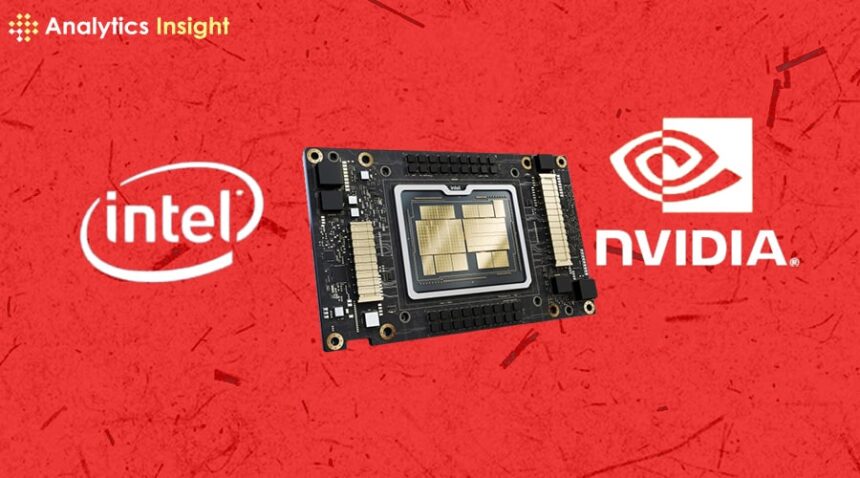Intel and NVIDIA: Dominant Forces in Semiconductor and AI Computing Technologies
In the ever-evolving landscape of technology, two industry titans, Intel and NVIDIA, stand out as leaders in semiconductors and artificial intelligence (AI) computing. Their innovative products and cutting-edge technologies have not only revolutionized computing but also driven advancements across various industries. As we delve into the intricate realm of these tech giants, we witness a fierce battle for dominance in semiconductor manufacturing, AI computing, and beyond. From Intel’s legacy of groundbreaking processors to NVIDIA’s pioneering advancements in GPU technology, the competition between these powerhouses shapes the future of computing. Join us as we explore the clash of titans between Intel and NVIDIA, uncovering their strengths, weaknesses, and the ongoing quest for technological supremacy in the world of semiconductors and AI computing.
Intel: A Legacy of Innovation
Intel has long been synonymous with the semiconductor industry, earning a reputation for its groundbreaking processors and chipsets. With a legacy spanning decades, Intel has consistently pushed the boundaries of computing power, revolutionizing industries and enabling technological advancements. From the iconic x86 architecture to the latest iterations of its Core processors, Intel’s products have become ubiquitous in computers, servers, and data centers worldwide.
NVIDIA: Pioneering AI Computing
In recent years, NVIDIA has emerged as a frontrunner in AI computing, leveraging its expertise in graphics processing units (GPUs) to drive innovation in artificial intelligence and deep learning. NVIDIA’s GPUs are widely used in AI applications, from training neural networks to powering autonomous vehicles and healthcare diagnostics. The company’s CUDA platform and specialized hardware, such as the Tesla and Quadro series, have cemented its position as a leader in the AI computing space.
The Battle for Market Dominance
As Intel and NVIDIA continue to innovate and expand their product portfolios, the competition between them intensifies. In the semiconductor market, Intel faces increasing pressure from competitors like AMD and ARM, prompting the company to explore new technologies such as quantum computing and advanced packaging solutions. Meanwhile, NVIDIA’s dominance in AI computing faces challenges from emerging players like AMD and specialized AI chip startups, driving the company to invest in areas such as data center GPUs and edge computing.
Innovation and Technological Advancements
Both Intel and NVIDIA are at the forefront of technological advancements, with ongoing investments in research and development to drive innovation. Intel’s recent forays into artificial intelligence, quantum computing, and 5G networking demonstrate its commitment to diversifying its product offerings and staying ahead of the curve. Similarly, NVIDIA’s focus on AI, autonomous vehicles, and gaming technologies underscores its dedication to pushing the boundaries of what’s possible in computing.
Challenges and Opportunities
Despite their strengths, both Intel and NVIDIA face challenges in an increasingly competitive market. Intel’s struggles with manufacturing delays and chip shortages have raised concerns about its ability to maintain its leadership position, while NVIDIA grapples with regulatory scrutiny and supply chain disruptions. However, both companies also have opportunities for growth, particularly in emerging markets such as AI, autonomous vehicles, and cloud computing.
Emerging technologies such as artificial intelligence, machine learning, and edge computing continue to drive demand for more powerful and efficient computing solutions. Intel and NVIDIA are strategically positioned to capitalize on these opportunities, leveraging their expertise and resources to meet the evolving needs of customers worldwide. By focusing on innovation, strategic partnerships, and customer-centric solutions, both companies are poised to navigate the challenges of the ever-changing technology landscape and seize the opportunities that lie ahead. As they continue to push the boundaries of what’s possible in semiconductors and AI computing, the rivalry between Intel and NVIDIA serves as a catalyst for innovation, driving advancements that will shape the future of technology for generations to come.
Source: www.analyticsinsight.net


